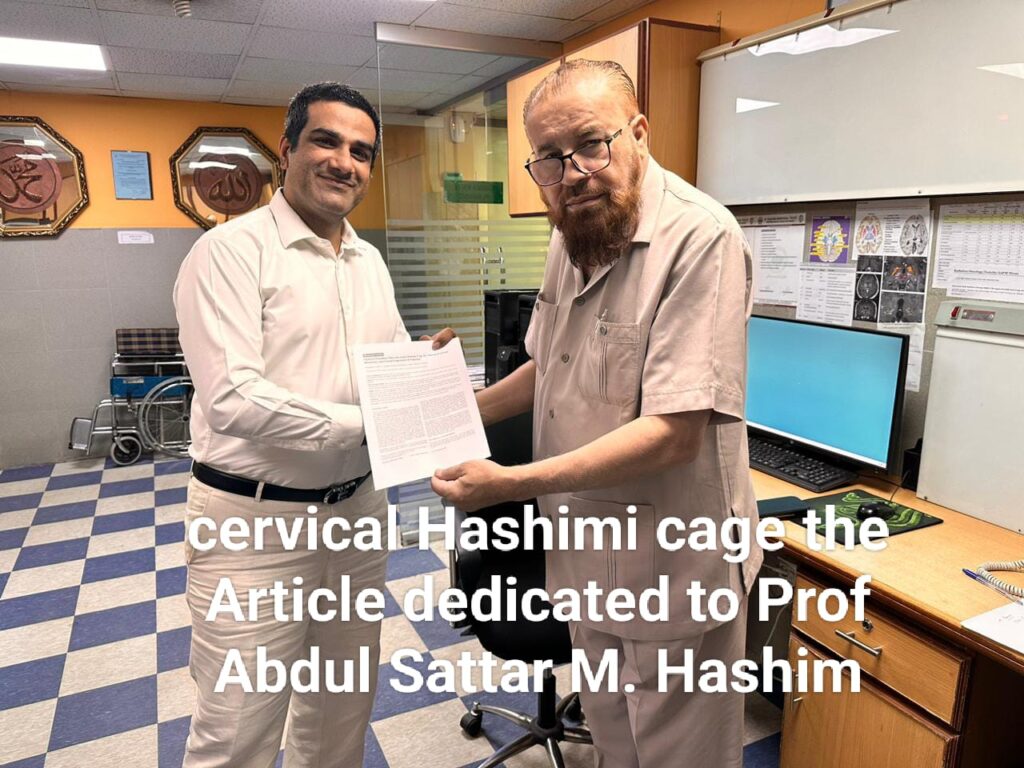Cloward Procedure Outcome using Hashmi Cage for Anterior Cervical
Discectomy and Fusion Experience in Pakistan
Aurangzeb Kalhoro*, Kashif Ahmed, Pervaiz Ali, Abdul Sattar M. Hashim
Department of Neurosurgery, Neurospinal & Cancer Care Institute, Karachi, Pakistan.
Abstract: Background: We aim to focus on ACDF patients treated with Hashimi cage filled with autologous bone. We will assess the safety of this approach based on the specific surgical level and its outcome.
Objective: Study aims to evaluate the results of the Hashmi cage used in the Cloward Procedure while using odom’s based criteria for the outcome.
Materials and Methods: This was a descriptive study researched at the Neuro Spinal Cancer Care Institute in Karachi, time duration from 16 June 2016 to 31 June 2022. The study included patients with a single-level prolapsed intervertebral cervical disc. During the surgery. Bony Fusion was assessed using movement ≤ 1 mm in flexion and extension cervical X-rays, was required.
Result: We had 162 patients; among them males were 102 (62.96%) and female patient were 60 (37.03%). The median range for the age was from 23 to 63 years with mean 48 years ± 3.6 age. Clinically the patients presented with radiculopathy, commonly of the C6 level which (63.73%). Odom’s based criteria were used to evaluate the results of the procedure. Among the patients, 92.84% showed excellent outcomes, 4.9% had good results, 1.8% had fair outcomes, and 1.23% had a poor outcome.
Conclusion: ACDF with the Hashmi cage and plate application is a highly effective treatment option. This approach not only ensures better removal of the problematic discs but also significantly increases the likelihood of successful fusion and better radiological outcomes.
Keywords: Cloward procedure, Hashmi cage, Corpectomy, Anterior cervical discectomy fusion, Radiculopathy, Spine

